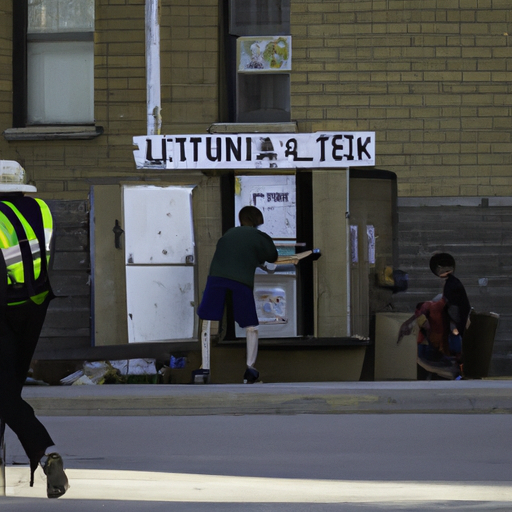Ongoing Opioid Crisis in Canada Calls for Urgent Attention
Just as the rest of the world is dealing with pressing issues, Canada too, is grappling with a deadly and debilitating plague, and that is the relentless opioid crisis. This urgent national health crisis is manifested through uncontrollable opioid misuse, which is driving up the addiction rates and significantly impacting the public health system.
In a recent article published by 620 CKRM, “Opioid Crisis Hits Saskatchewan”, the writer highlights the severity of the issue in the province of Saskatchewan, where the community is demanding urgent actions to address this predicament.
Understanding the Opioid Crisis
For those unaware, the opioid crisis is a wide-ranging public health emergency that involves misuse and overdose of opioids, including prescribed drugs, synthetic opioids like fentanyl, and illegally manufactured heroin. This crisis not only threatens the well-being of the individual users but also greatly impacts families, communities, and the overall public health system.
The Impact on Saskatchewan
In particular, the Saskatchewan cities of Regina and Saskatoon have seen a noticeable surge in substance misuse, homelessness, and related crimes due to this crisis. This has resulted in public spaces becoming unsafe and a marked deterioration in public health.
Key impacts that the opioid crisis has had on Saskatchewan, as noted in the referenced article include:
- An increase in opioid-related incidents: As access to addictive opioids becomes increasingly easy, more individuals are falling prey to this vicious cycle of addiction. This has led to an alarming rise in opioid-related incidents.
- Rise in homelessness: The opioid crisis has forced many individuals out of their homes and onto the streets. This phenomenon is not just confined to urban areas but is fast spreading to rural regions as well.
- Surge in crime rates: Opioid addiction often drives individuals towards unlawful activities. Hence, a significant rise in the crime rate is another detrimental effect of this crisis.
- Public spaces becoming unsafe: Substance misuse in public areas has created an unsafe environment for the community.
- Deterioration in public health: The opioid crisis has also put an immense strain on public health resources, which are already stretched thin due to the ongoing COVID-19 pandemic.
Efforts to Address the Opioid Crisis
In the midst of this distressing situation, the city of Regina is making serious efforts to tackle the opioid problem.
Firstly, the city has a one-of-a-kind opioid class action lawsuit against approximately 40 pharmaceutical companies. The objective here is to hold these companies accountable for the societal impact of the opioid crisis. This lawsuit, if successful, could financially help address issues linked to opioid misuse in the city.
Secondly, there is considerable backing for investing in crisis intervention teams and Mental Health drop-in centres. Additionally, the city is looking to improve procedures to distribute Naloxone — a medication designed to rapidly reverse opioid overdose.
Simultaneously, civic bodies and NGOs are amplifying efforts to help those affected by this crisis, focusing on creating safe spaces for rehabilitation and recovery, implementing addiction recovery programs, and offering necessary medical and legal aid.
A Closing Appeal
While these actions offer hope, the opioid crisis is still a widening problem that calls for immediate and dedicated attention from all strata of society.
The gravity of the scenario is such that simply maintaining the status quo or implementing existing strategies will not suffice. Everyone- governments, civic bodies, community leaders and citizens must join hands to pool resources, devise strategic solutions, and implement effective actions for the best societal outcomes.
Let us not underestimate the power of collective effort. Together, we can tackle this opioid crisis head-on and usher in a healthier, safer Canada for future generations.
In conclusion, addressing the opioid crisis effectively will require:
- Long-term commitment from all levels of government and society
- Enforcing stricter regulations on opioid distribution
- Strengthening mental health support and rehabilitation resources
- Involving communities in policymaking and implementation
Remember, while the opioid crisis might seem daunting, it is not insurmountable. We have the capacity, and more importantly, the responsibility to change the narrative around opioid misuse in our communities, one step at a time. It’s time to take action – the health and wellbeing of our citizens depend on it.
